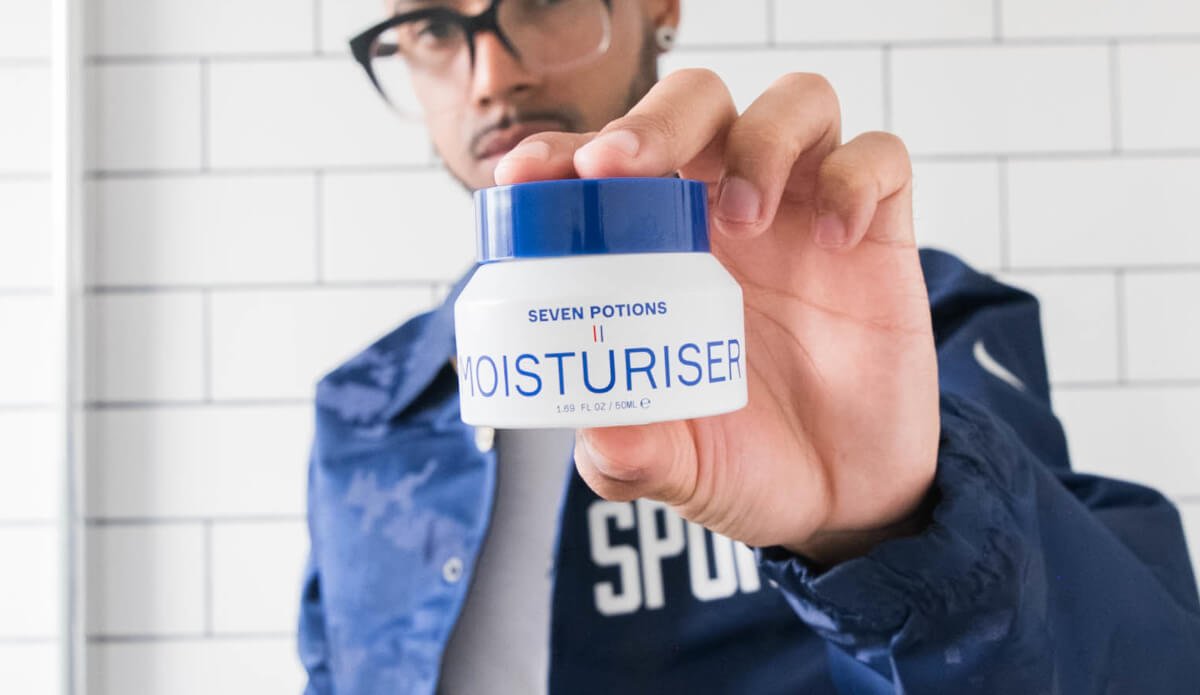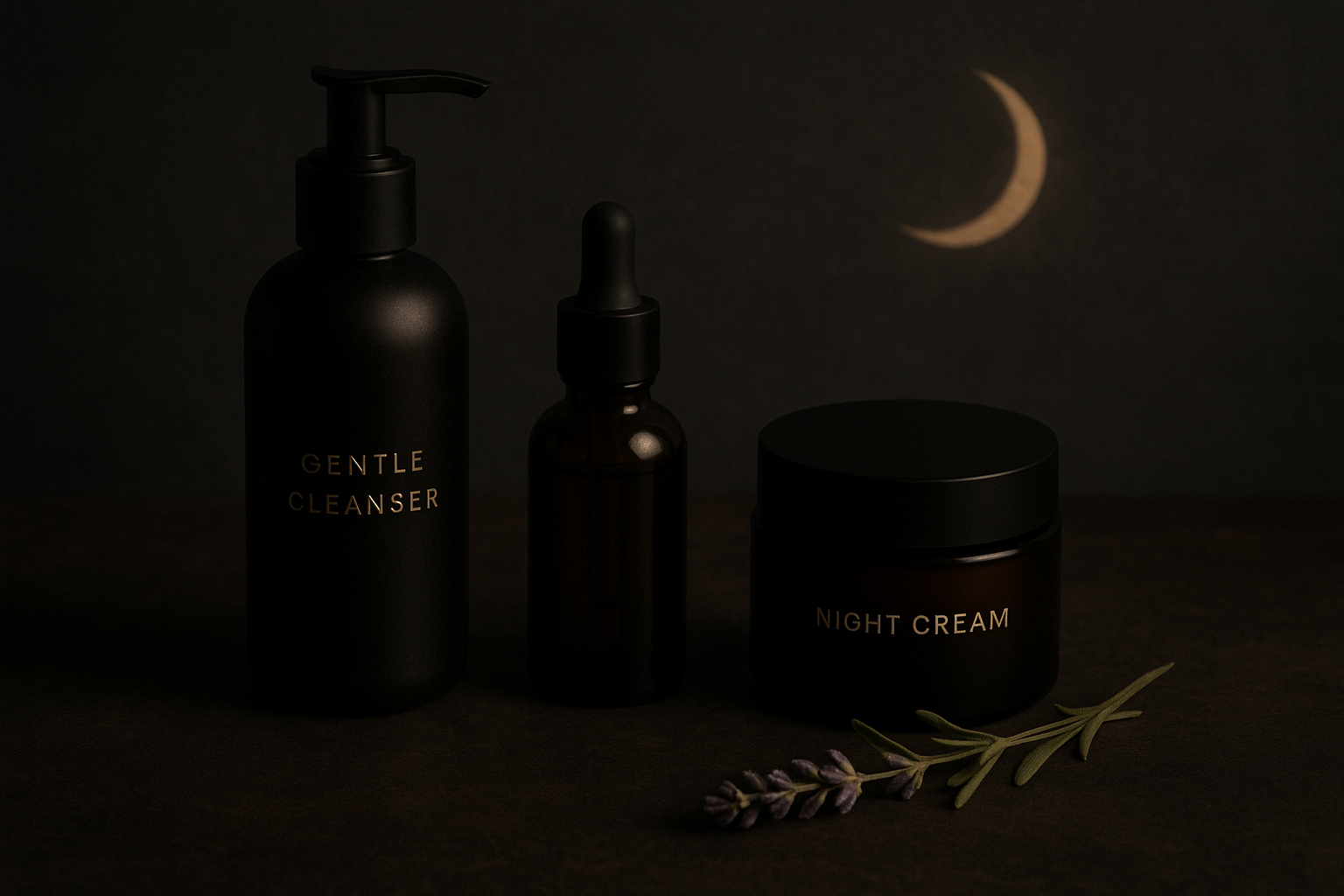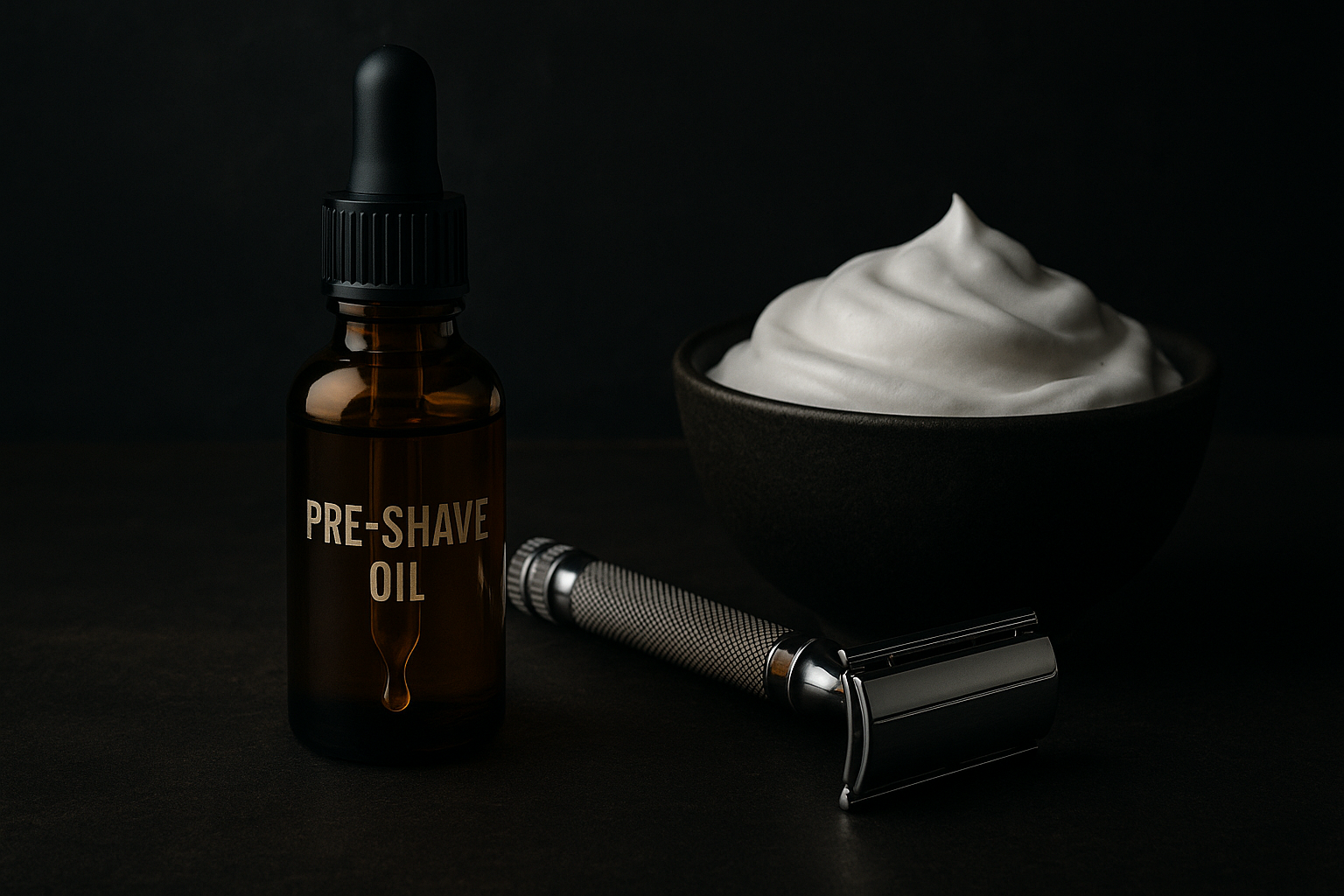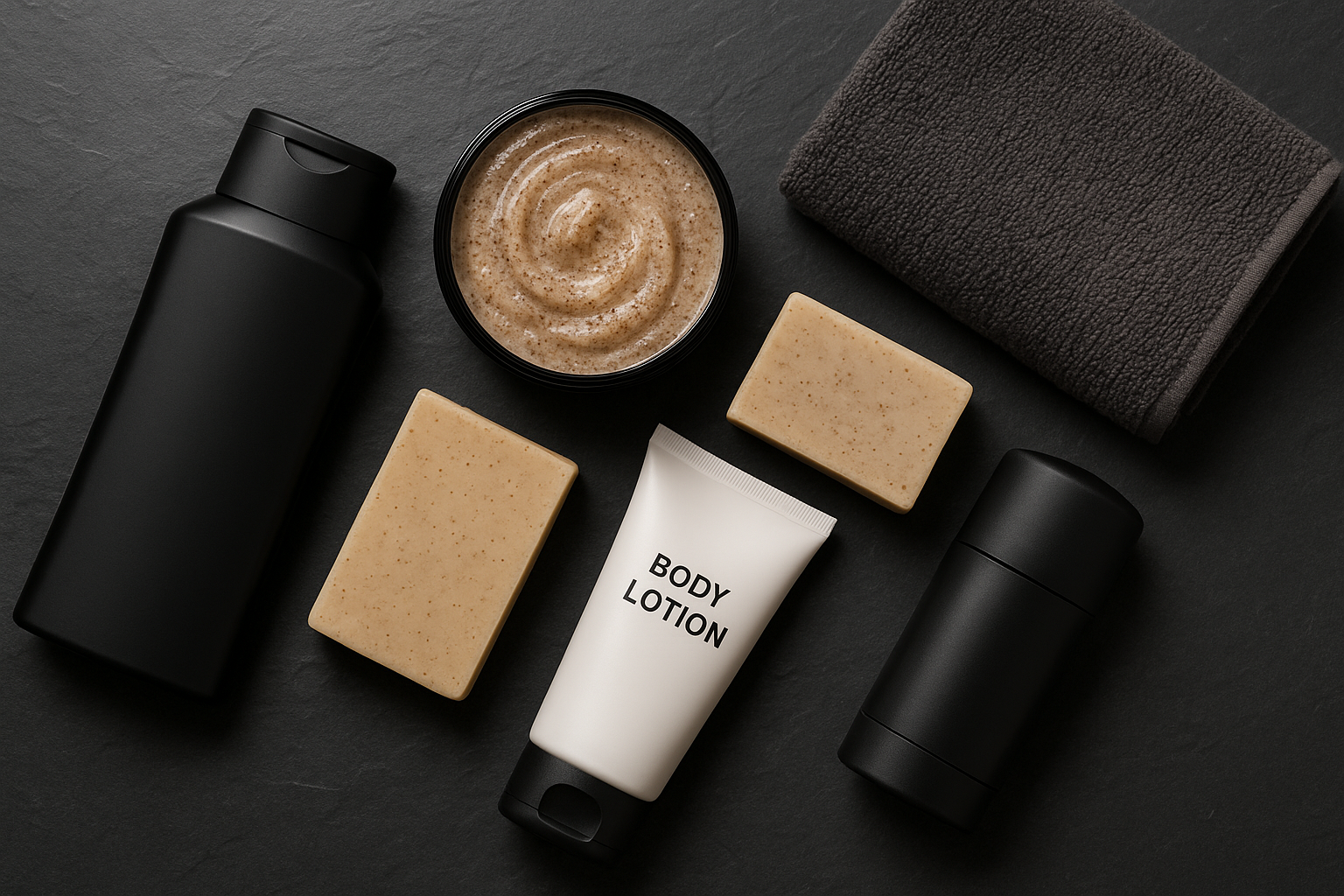As men, we like to keep things simple. So when it comes to our skincare routine, many feel that the fewer steps, the better. However, this leads many to bypass essential skincare staples like a high-quality moisturiser.
A good moisturiser is an integral part of any skincare routine, no matter how simple. It helps to keep skin hydrated, protected, and healthy.
There are a lot of different moisturisers on the market, so it can be tricky to know which one is right for you. In this post, we'll take a look at what makes a good moisturiser and why Seven Potions' Natural Antiageing Moisturiser is one of the best options for modern gentlemen like yourself.
The Skin You're In
Before we get into the details of our face cream, let's first take a moment to understand the skin you're working with. The skin is the largest organ in the human body, and it's composed of water, protein, lipids, and various minerals and compounds. Your skin serves several vital functions, including regulating body temperature, waterproofing and protecting the body from environmental toxins, and assisting in the production of vitamin D.
Layers of Human Skin
Your skin is made up of three main layers: the epidermis, dermis, and hypodermis. Each has its own unique functions and purpose, and learning more about them can help you fully understand the need for a good moisturiser.
- The Epidermis –The epidermis is the outermost layer of skin, and it's what you see when you look in the mirror. This layer is made up of skin cells that are constantly being shed and replaced. Around 40,000 old skin cells are shed and replaced daily, leading to entirely new skin approximately every 30 days. The epidermis also contains melanocytes, which produce melanin, the pigment that gives skin its colour. This protective barrier is your body's first defence against UV radiation, bacteria, and other environmental toxins.
- The Dermis –The dermis is the middle layer of skin, and it's where you'll find things like sweat glands, hair follicles, and blood vessels. This layer is made up of connective tissues like collagen and elastin, which give skin elasticity and strength. The dermis also contains sebaceous glands, which produce sebum, an oily substance that helps to keep skin hydrated and protected.
- The Hypodermis – The hypodermis is the innermost layer of skin, and it's made up of fat cells that help to cushion and protect the body's muscles and bones. Additionally, connective tissue here binds the skin to the underlying muscles. This layer also has the important job of helping to regulate body temperature and store energy.
Trans-Epidermal Water Loss (TEWL)
Now that we've briefly covered the main layers of your skin let's talk about water loss. Your skin is constantly losing water through a process called trans-epidermal water loss (TEWL). This is a normal and necessary process that helps to keep your skin healthy and functioning correctly. However, when TEWL is increased, it can lead to dryness, irritation, and other skin problems.
Several factors can contribute to increased TEWL, including:
- Age – As we age, our skin produces less sebum, which leads to increased water loss.
- Environment –Extreme temperatures, windy conditions, and low humidity can all contribute to increased water loss.
- Certain medical conditions –Eczema, psoriasis, and other conditions that cause inflammation can lead to increased TEWL.
- Certain medications – Some medications, such as acne treatments, can cause increased TEWL.
- Excessive cleansing – Overwashing or using harsh cleansers can strip away the natural oils that help to protect your skin, leading to increased water loss.
Understanding the Difference Between Facial Skin and Body Skin
It's important to understand that the skin on your face differs from the skin on the rest of your body. In general, facial skin is thinner, more delicate, and more susceptible to damage. This is because the fat layer (hypodermis) is thinner on the face than on the rest of the body.
Additionally, the skin on your face has a higher density of sebaceous glands, which produce sebum. This helps to keep your skin moisturised and protected, but it also makes your face more prone to breakouts.
Your facial skin should also go through a different cleansing routine than the rest of your body. For example, some people use harsh soaps or cleansers on their face, which can strip away the natural oils that help to protect it. Further, many people scrub their faces vigorously in an effort to remove dirt and debris. However, this can do more harm than good, as it irritates and damages delicate facial skin.
Your facial skin can be divided into different zones. It's important to know that the face can be mapped out in this way when dealing with issues that seem to be localised. This way, you can target your skincare routine to each zone's specific needs. Here's a quick overview of the different facial zones:
- Forehead and Nose (T-Zone)
- Eyebrow Area
- Under-Eye Area
- Cheeks
- Jawline and Chin
Other areas related to the face that also may require specific skin care include:
- Lips
- Neck
- Head (Bald)
Importance for Men of Keeping Skin Healthy and Moisturized
As any dermatologist will tell you, skin care is essential for everyone, regardless of gender. However, there are some unique considerations when it comes to men's skincare. For one thing,men tend to have oilier skin than women, which can lead to breakouts and other problems. In addition, shaving can be tough on the skin, causing irritation, razor burn, and ingrown hairs.
Keeping skin healthy and moisturised is an important way for men to look their best. For one, it can help to prevent premature ageing. The sun’s UV rays can cause damage to the skin, leading to wrinkles and fine lines. By using a daily moisturiser and a product with SPF, men can help to protect their skin from the sun’s harmful rays while keeping it nourished. In addition, keeping skin healthy and hydrated can help to prevent acne. Men tend to have larger pores than women, which can become clogged with dirt and oil. This can lead to breakouts. However, by using a face wash and moisturiser designed for men’s skin, it is possible to keep pores clear and reduce the risk of acne.
The Role of a Good Moisturiser
Moisturisers help to keep skin hydrated by trapping water in the outermost layer of the skin. This prevents the evaporation of water from the skin, which can lead to dryness and irritation. In addition, moisturisers help to protect the skin from environmental aggressors such as wind and pollution. And they can also help to improve the appearance of the skin by smoothing out fine lines and wrinkles.
What Kind of Moisturiser is Good?
A good moisturiser should be light and non-greasy, so it won't clog pores or leave skin feeling oily. It should also be easily absorbed so it doesn't leave a sticky residue. In addition, a good moisturiser should contain ingredients that help to promote cell turnover and protect against environmental damage. Some of the most effective ingredients include retinol, vitamin C, and SPF. However, there are also a few things that a good moisturiser shouldn't do. For example, it shouldn't cause breakouts, irritate sensitive skin, or make skin look shiny or greasy. When used correctly, a good moisturiser can help to keep skin looking and feeling its best.
Seven Potions' Anti Ageing Moisturiser
Indeed, a gentleman never reveals his age. But as we age, we know the tell-tale signs are there, hidden beneath the surface. Fine lines begin to show, and skin becomes dull and lacklustre. You can see it in the mirror, but you don’t have to resign yourself to it just yet, thanks to Seven Potions Anti Ageing Moisturiser.
Anti-ageing moisturisers are designed to help reduce the appearance of fine lines and wrinkles. Containing ingredients which help to stimulate cell turnover, brighten skin, and protect against environmental damage, they are an excellent moisturiser choice for your skincare routine because they can help to keep skin looking its best.
Our unique formula contains antioxidant-rich ingredients such as liquorice rhizome, cucumber fruit extract, and hydrolysed Rhodophyceae extract. Together, they help prevent and correct visible damage and signs of ageing while stimulating collagen production and lessening the impact of the sun's harmful rays.
Father Time doesn't need to get the better of you just yet, and your skin can and deserves to look amazing at any age. Seven Potions Anti Ageing Moisturiser is your secret weapon in the fight against time and feeling better about yourself in the process.
How to Use Anti Ageing Moisturiser
Our Anti Ageing moisturiser can be used twice daily, in the morning and evening. It works best on a freshly washed face that has been pat dry with a clean towel.
Follow these simple steps:
- Start with about half a thumbnail-sized amount on your fingertip. Less is more.
- Begin by dabbing small amounts on your forehead, nose, and cheek. Then to more delicate skin like under your eyes.
- For undereye skin, don’t rub. Instead, gently pat the moisturiser until it is absorbed.
- For cheeks, nose, and forehead, apply very gentle pressure in a circular motion to work the product into the skin.
Remember that your technique is important. Avoid rubbing too forcefully as this can cause an inflammatory response that can aggravate rosacea and cystic acne or lead to under-eye shadows.
A Proper Skincare Routine
Many men are not educated in the art of skincare like our female counterparts are due to annoying things like gender roles. Because of these, we're robbed of the opportunity to have clear and healthy skin like they do. But times are changing, and the media and self-care industry are slowly but surely making it more socially acceptable for men to care about their skin.
A proper skincare routine is vital for keeping skin looking and feeling its best. In addition to using a good moisturiser, it is also important to follow a few other steps.
This may seem complicated or intimidating. However, we're not suggesting you attempt everything. Instead, we're giving you the information and letting you know where a high-quality daily moisturiser fits into your routine.
- Cleansing –The first step in any skincare routine is cleansing. This helps to remove dirt, oil, and other impurities from the skin. It is important to use a cleanser or face wash that is designed for your skin type. And when in doubt, reach for a product like Seven Potions Face Wash, designed to be gentle enough for sensitive skin yet capable of handling all skin types and needs.
- Exfoliation –Exfoliating helps to remove dead skin cells from the surface of the skin. This can be done with a physical exfoliator or with a chemical exfoliator. A physical exfoliator uses ingredients like Jojoba beads to slough away dead skin cells. A chemical exfoliator uses ingredients like Alpha Hydroxy Acids (AHAs) to dissolve the glue-like substance that holds dead skin cells together. Regardless of which you use, exfoliating can help improve your skin's appearance by promoting cell turnover and revealing brighter, more radiant skin. Physical exfoliators tend to be most popular among men. They're great to use before shaving, as they can help prevent razor burn by removing dead skin cells and debris from the skin's surface, making things smoother and lifting hairs so they don't lie flat. It's important to note that exfoliating should only be done a few times a week as over-exfoliating can lead to irritation, redness, and dryness. Aim for two to three times maximum.
- Toning –Toner is often overlooked, but it is an essential step in any skincare routine. Much like men's aftershave used to all be alcohol-based, the story of toners is much the same. However, a revolution has happened, and we now have alcohol-free toners that are beneficial for the skin. Toner helps to restore the skin's pH balance, refresh, and hydrate. It can also help remove any lingering impurities your cleanser may have missed. Its job is to prime your skin for additional products so they can better penetrate the skin and do their job.
- Serums – A serum is a concentrated formula that contains active ingredients that target specific concerns, like wrinkles, dark spots, or dryness. They are designed to penetrate deep into the skin and deliver powerful results. Because of this, they are often on the pricier side. They're not an essential part of a skincare routine. Think of them more as a bonus to give you a little extra help with your specific concerns.
- Moisturisers – As we've talked about, a good moisturiser is an essential part of any skincare routine. It helps to lock in moisture and keep the skin hydrated. This is especially important in the colder months when the air is dryer and can strip moisture from the skin. In addition, a good moisturiser will help to protect the skin from environmental aggressors and keep it looking its best. Eye cream is a specific kind of moisturiser that is designed for the delicate skin around the eyes. It can help to reduce the appearance of dark circles, wrinkles, and puffiness. It should always be applied before your face moisturiser to ensure it has the chance to penetrate the skin thoroughly.
- SPF Protection – Last but not least, don't forget your sunscreen. SPF is an integral part of any daytime skincare routine, regardless of the time of year. It helps to protect the skin from harmful UV rays and prevent damage. Therefore, it's important to choose a sunscreen that is designed for your skin type and provides adequate protection. A good rule of thumb is to choose an SPF of 30 or higher. After all, using sunscreen regularly helps reduce the risk of melanoma.
So, there you have it – a crash course in men's skincare. Now that you know the basics let's learn one final rule of thumb that will save you from confusion should you forget the order. Begin with a cleanser or face wash, exfoliate if shaving, and then move on to light products with a thin consistency and work your way up to thicker or heavier ones to complete the routine.
Other Ways to Keep Your Skin Healthy
While moisturising is an essential part of any skincare routine, there are other things you can do to keep your skin healthy. Here are a few tips:
Stay Hydrated
Any dermatologist will tell you that one of the best things you can do for your skin is to stay hydrated by drinking lots of water. And there's a good reason for that. Water is essential for all bodily functions, including keeping your skin looking healthy. When you don't drink enough water, your body starts to pull moisture from your skin, which can lead to dryness, flakiness, and premature wrinkles. In addition, water helps to flush out toxins and keep your cells plump and hydrated. As a result, drinking plenty of water is one of the simplest and most effective ways to keep your skin looking its best.
Sleep More
A great night's sleep does wonders for your appearance. Not only does it help you feel rested and relaxed, but it also gives your skin a chance to recover from the stresses of the day. During sleep, your body's natural repair processes are enhanced, increasing cell turnover. As a result, you wake up with refreshed, glowing skin. In addition, sleeping more can help to reduce the appearance of fine lines and wrinkles. When you don't get enough sleep, your body produces more of the stress hormone cortisol. This hormone breaks down collagen, the protein that gives your skin its elasticity. As a result, chronic lack of sleep can lead to premature ageing of the skin.
Eat Healthily
A proper diet and eating healthy food are essential for optimal skin health. Your skin is your body's largest organ, and what you eat has a direct impact on its appearance. Eating plenty of fruits, vegetables, and whole grains provides the skin with vitamins A, C, and E that it needs to stay hydrated and look its best. In addition, omega-3 fatty acids are essential for keeping skin supple and preventing inflammation. Conversely, processed foods, refined sugars, and excessive amounts of saturated fat can lead to breakouts, dullness, and premature ageing.
Quit Smoking
Smoking is one of the worst things you can do for your skin. It accelerates ageing by damaging collagen and elastin, the fibres that give skin its elasticity and strength. It also decreases blood flow, which robs the skin of vital nutrients and oxygen. As a result, smokers often have a dull, grey complexion and more wrinkles than nonsmokers of the same age. In addition, smoking increases your risk of developing skin cancer. So if you're a smoker who's concerned about the health and appearance of your skin, quitting is one of the best things you can do.
Drink Less
Many people are unaware of the damaging effects that alcohol can have on the skin. While moderate consumption of alcohol is often considered to be healthy, the reality is that even a small amount of alcohol can dehydrate the skin and cause inflammation. In addition, alcohol is a diuretic, which causes the body to lose fluids more quickly. This can lead to dry, flaky skin that is more susceptible to wrinkles and other forms of damage. Quitting alcohol or reducing consumption can help to improve skin health and appearance. The skin will become better hydrated and will reduce the risk of inflammation.
Exercise Regularly
One might not think there would be a link between exercising and skin health, but exercise plays an important role in keeping skin healthy. When we exercise, our heart rate increases, and we start to breathe more deeply. This increased blood flow brings more oxygen to our cells and helps to remove waste products. All these factors together help keep our skin looking healthy and radiant.
Reduce Stress
If you're like most people, you probably think of stress as something that's purely mental. But the fact is, stress can also take a toll on your physical appearance — especially your skin. When you're stressed, your body produces hormones like cortisol and adrenaline. These hormones can trigger inflammation and cause your skin to break out. They can also interfere with collagen production, leading to wrinkles and fine lines. In addition, stress can cause your blood vessels to constrict, resulting in a loss of blood flow to the skin. This can make your skin look dull and lifeless. Fortunately, there are plenty of simple ways to reduce stress in your life, including exercise, meditation, and spending time with friends and family. And not only will reducing stress improve your complexion — it'll also do wonders for your overall health.
Use Humidifiers
If you live in a dry climate or if your skin feels dryer than usual, consider using a humidifier. By definition, humidifiers are devices that emit water vapour or steam to increase humidity levels, which is incredibly beneficial for skin health. For one, increased humidity levels reduce the probability of skin cell death. In other words, using a humidifier ensures that your skin cells have a fighting chance against the dry air. So by increasing the moisture in the air, humidifiers can help to keep your skin hydrated and prevent dryness and irritation.
Cover Up
Sunscreen is one of the most essential skincare products that you can use to protect yourself from the harmful effects of ultraviolet (UV) radiation. However, it is not the only option available for sun protection. In fact, clothing with a high SPF rating can provide excellent protection against UV radiation, and there is now a wide range of light-weight, airy and breathable options available for hot weather. They also offer excellent coverage, which helps to prevent sun damage. In addition to clothing, hats are another great way to protect your skin from the sun. A wide-brimmed hat can cover your face and neck, providing essential protection from harmful UV rays.
Invest in Your Skincare
Your skin is your body's largest organ. It's also the part of you that everyone sees first, so it's important to take care of it. That's why investing in high-quality skincare products is so important. Yes, they can seem pricey at first, but they use better quality ingredients and fewer fillers. They also don't require as much to get the job done, so they often end up lasting longer than budget options. Plus, if you think about it, your skin is exposed to the elements 24/7. It gets sunburned, windburned, and dry from indoor heating in the winter. It gets dry from salt water in the summer. It endures a lot of wear and tear, so it deserves the best care. So if you're serious about taking care of yourself, invest in some high-quality skincare products and give your skin the attention it deserves. Your body will thank you for it.
When to See a Dermatologist
Kudos to you for taking your skincare routine more seriously. Achieving and maintaining healthy skin requires effort, discipline, and consistency but trust us, it is worth it. And even though you may be doing everything right — eating a balanced diet, drinking plenty of water, using SPF daily, exfoliating regularly — sometimes that isn't enough. That's when you need to consult with a dermatologist.
Dermatologists are skin specialists. They completed medical school and then went on to complete a 3-4 year residency program focused exclusively on the skin. This training gives them the skills and knowledge to treat conditions ranging from acne and psoriasis to skin cancer. In addition to medical treatment, dermatologists can also provide cosmetic services like Botox injections, laser hair removal, and fillers.
If you're dealing with a chronic skin condition or are concerned about a mole or other growth, make an appointment with a dermatologist. You may be able to book an appointment directly, or your regular doctor may need to provide a referral. Don't wait until the problem gets worse — your skin deserves the attention of a specialist to help it stay healthy and strong.



